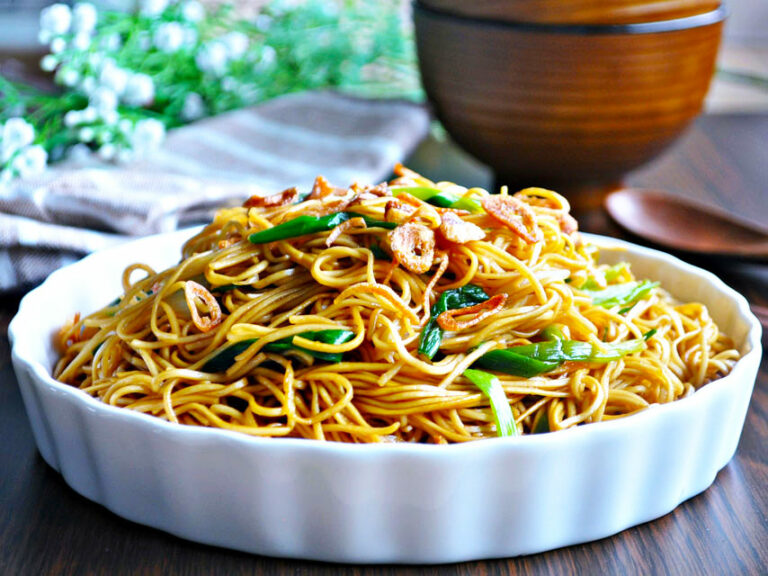Introduction: Exploring Mauritian Cuisine
Mauritian cuisine is a unique blend of flavors that reflects the island’s diverse cultural influences. The dishes are a fusion of Indian, Chinese, African, and European cuisine, and they feature a wide range of spices, herbs, and ingredients. Some of the popular Mauritian dishes include fish vindaye, dholl puri, gateaux piments, and rougaille.
If you are planning to try Mauritian cuisine, it is essential to keep in mind the health considerations. While the dishes can be flavorful and tempting, they may also come with potential health risks. The article will discuss the spices, ingredients, and nutritional value of Mauritian cuisine, as well as the potential health benefits and risks.
Spices and Ingredients Used in Mauritian Cooking
Mauritian cuisine uses a wide range of spices and ingredients that add flavor and aroma to the dishes. Some of the common spices used in Mauritian cooking include cumin, coriander, turmeric, saffron, ginger, garlic, and cinnamon. These spices are believed to have medicinal properties, such as anti-inflammatory and antioxidant effects.
In addition to spices, Mauritian dishes also feature a variety of ingredients, including seafood, meats, vegetables, legumes, and grains. Fish and seafood are popular ingredients in Mauritian cuisine as the island is surrounded by the Indian Ocean. Vegetables such as eggplants, pumpkins, and chayotes are also widely used. Legumes like lentils and chickpeas are a staple in many Mauritian dishes, and grains such as rice and wheat flour are used to make bread and roti.
Common Mauritian Dishes and Their Nutritional Value
Mauritian cuisine includes a range of dishes that offer various nutritional benefits. Dholl puri, a type of flatbread made with split peas, is high in protein and fiber. Rougaille, a tomato-based sauce with fish or meat, is rich in vitamins and minerals. Gateaux piments, a popular snack made with lentils, is high in protein and low in fat.
One of the most popular Mauritian dishes is fish vindaye, which is made with fish marinated in vinegar and spices. Fish is a good source of protein and omega-3 fatty acids, which are essential for heart health. However, it is important to note that some Mauritian dishes may be high in salt, sugar, or saturated fat, which can increase the risk of chronic diseases.
Potential Health Benefits of Mauritian Cuisine
Mauritian cuisine offers many potential health benefits due to the use of spices and ingredients that have medicinal properties. For example, turmeric is believed to have anti-inflammatory and antioxidant effects, which can help reduce the risk of chronic diseases such as cancer and heart disease. Ginger is also known for its anti-inflammatory effects and may help reduce nausea and vomiting.
Mauritian cuisine also includes a wide variety of fruits and vegetables, which are rich in vitamins, minerals, and fiber. These nutrients are essential for maintaining good health and reducing the risk of chronic diseases.
Potential Health Risks of Mauritian Cuisine
While Mauritian cuisine offers many potential health benefits, it is important to keep in mind the potential health risks. Some Mauritian dishes may be high in salt, sugar, or saturated fat, which can increase the risk of chronic diseases such as heart disease, diabetes, and obesity. Fried foods such as gateaux piments and samosas may also be high in calories and fat.
In addition, some Mauritian dishes may contain allergens such as nuts, shellfish, or gluten. It is important to check with the restaurant or cook about the ingredients used in the dish before consuming it.
Conclusion: Balancing Taste and Nutrition in Mauritian Cooking
Mauritian cuisine is a flavorful and diverse cuisine that offers a unique blend of spices and ingredients. While it offers many potential health benefits, it is important to keep in mind the potential health risks and balance taste with nutrition.
To ensure a healthy and balanced diet, it is recommended to choose dishes that are low in salt, sugar, and saturated fat, and high in fruits, vegetables, whole grains, and lean protein. It is also important to practice moderation and portion control when consuming Mauritian cuisine. By following these guidelines, you can enjoy the delicious flavors of Mauritian cuisine while maintaining good health.

